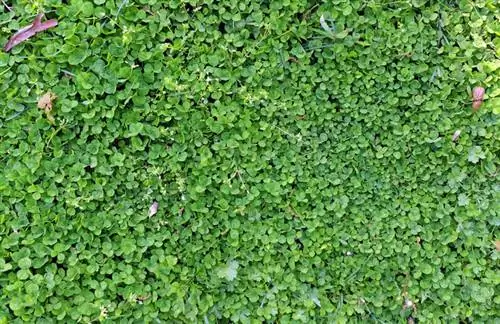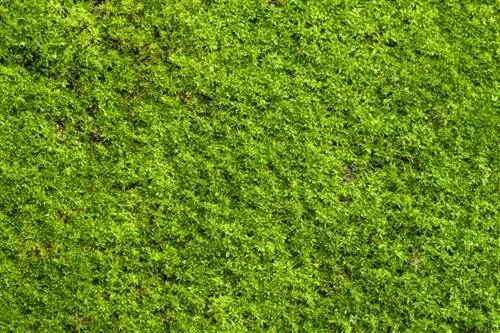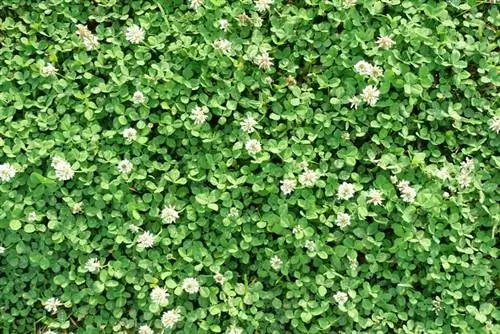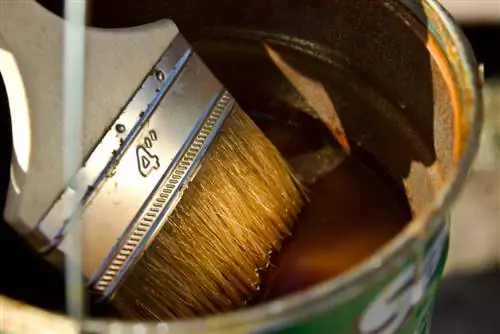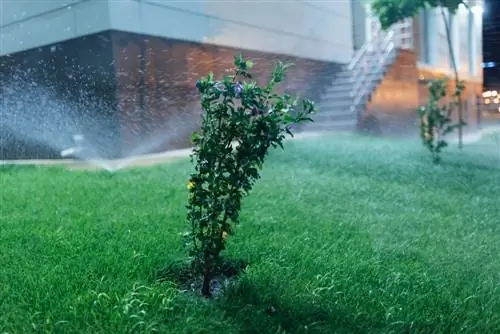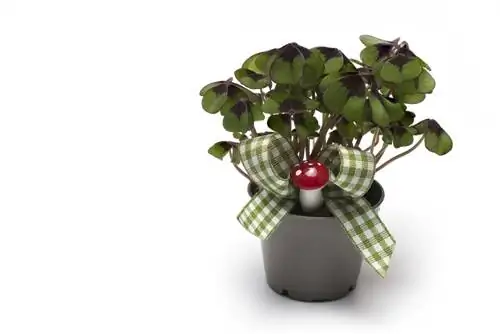- Author admin leonars@hobbygardeners.com.
- Public 2023-12-16 16:46.
- Last modified 2025-01-23 11:20.
If unwanted clover grows in your lawn, the only solution is usually a combination of fertilizing and scarifying. But you can also turn the tables and rely on the lush green of an area planted with clover instead of a weak lawn.
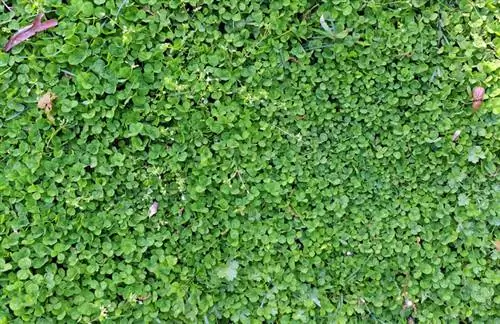
Why choose clover instead of lawn?
Clover instead of lawn offers advantages such as lower maintenance, adaptability to nitrogen-poor soils, shade tolerance and ecological diversity. A clover-lawn mixture is resilient, wear-resistant and an attractive lawn replacement.
Reasons for clover as a lawn replacement
Sometimes even hardy lawn varieties have a hard time asserting themselves in a specific area with dense growth. For example, the following reasons could be responsible for this:
- nitrogen-poor soil
- too much shadow
- Waterlogging in the ground
Clover does not tolerate waterlogging well, but it can store its nitrogen itself from the atmosphere via the nodule bacteria on the roots. In addition, clover as a lawn replacement can usually be kept short with much less care than most types of grass. Another ecologically valuable fact: The spherical flowers of red and white clover are a valuable source of nectar for butterflies, bumblebees and bees.
Sowing and caring for the clover correctly on the desired area
Before sowing, the intended area should be leveled as well as possible. However, resist the temptation to simply spread the clover seed by hand, as this will almost always produce very irregular results. It is better to mix the seeds with a fine, crumbly sowing soil and distribute it evenly over the prepared area. The seeds should be covered with no more than 1 to 2 cm of soil and kept evenly moist during the germination phase. It is also important that you do not enter the area before the plants have developed sufficiently vigorously.
Tips for a he althy clover lawn
So that you get the most attractive lawn replacement possible, seeds from particularly small-leaved clover varieties are available from specialist retailers. Clover and lawn seeds can also be mixed to create a resilient clover lawn. Since the clover is relatively sturdy, but also somewhat sensitive under heavy use, paths made of stepping stones or path slabs should help protect the clover surface.
Tip
Red and white clover are hardy and perennial, but rather short-lived. Therefore, the plants should be able to reproduce regularly through self-sowing if possible and should not be kept too short. As a rule, most types of clover also reproduce vegetatively via runners.

